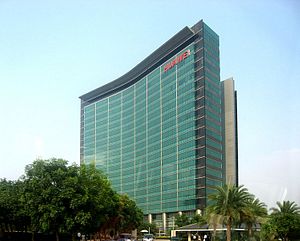There is little indication that the United States intended to “weaponize” intellectual property law when it helped sponsor the development of robust systems of IP protection in the 1990s. This process was driven largely by corporations in the entertainment, agriculture, and pharmaceutical sectors, all of which sought tighter protection in order to guarantee their own profits against competitors in the developing world. This effort has been remarkably successful, as the Agreement on Trade-Related Aspects of Intellectual Property Rights (TRIPS) became binding on WTO members in 1989, and a flurry of bilateral treaties, all with extensive IP regulations, followed in the early 21st century.
Empirical research on globalization has long suggested that states benefit from “first mover” steps with respect to the establishment of global rules of the road. We can now interpret U.S. efforts on IP since the 1990s as establishing this first mover advantage, both in terms of the establishment of regulation, and insofar as that regulation helped U.S. firms to maintain their own technological “first mover” advantages against competitors in the developing world.
So the world of intellectual property regulation is, in some important sense, the world that America has built. China has, for the past two decades, tried to accommodate itself to this world. China has aggressively taken advantage of soft spots in the system, acquiring technology through means more and less mendacious. Huawei’s ability to integrate itself into the international tech economy is a function of the development of IP law; the existence of legal protections that could be enforced, at least to some extent, in countries around the world enabled Huawei (and many other multinational tech firms) to take advantage of globalized innovation networks and global supply chains. This globalization, however, served to make Huawei vulnerable to the attack that the Trump administration has launched, with potentially lethal effects.
Now, the United States has decided to assert the power that is, in effect, inherent in its position as the central manager of global IP protection. These actions necessarily come with a cost. As Dan Nexon has argued, the United States is at risk of overplaying its hand with respect to the weapons of interdependence. With China, Iran, and other targets, U.S. policymakers need to weigh the short-term advantages of an attack against the long-term damage to the system itself.
America’s status as a first mover on intellectual property protection can obscure the fact that the system is, at its foundation, voluntary. In the mid-1800s, even developed nations treated each others’ patents and trade secrets as minor obstacles in the acquisition of new technology. Multilateral treaty making, led not by the United States but rather by Europe, helped to change that situation. Forty years ago, the idea that developing countries would respect the intellectual property protections imposed by the United States and Western Europe was considered equally absurd; indeed, one of the primary benefits of foreign direct investment involved the acquisition of advanced technology.
The international community accepted the growth of the international IP regime because of pressure, yes, but also because they saw advantage in promising to follow the rules that the United States helped to set. Allowing serious damage to major corporations (not just Huawei, but also all of the firms that do business with Huawei) was not part of the deal. As nations perceive IP law not simply as an obstacle to navigate, but also as a potentially lethal weapon directed at the core interests of their major corporations, they may well become more reticent about accepting the preconditions that the United States wants to establish. And that, in the end, means that efforts to exercise U.S. power may result in the loss of that power. The next column in this series will investigate the global impact of changed understandings of interdependence.

































